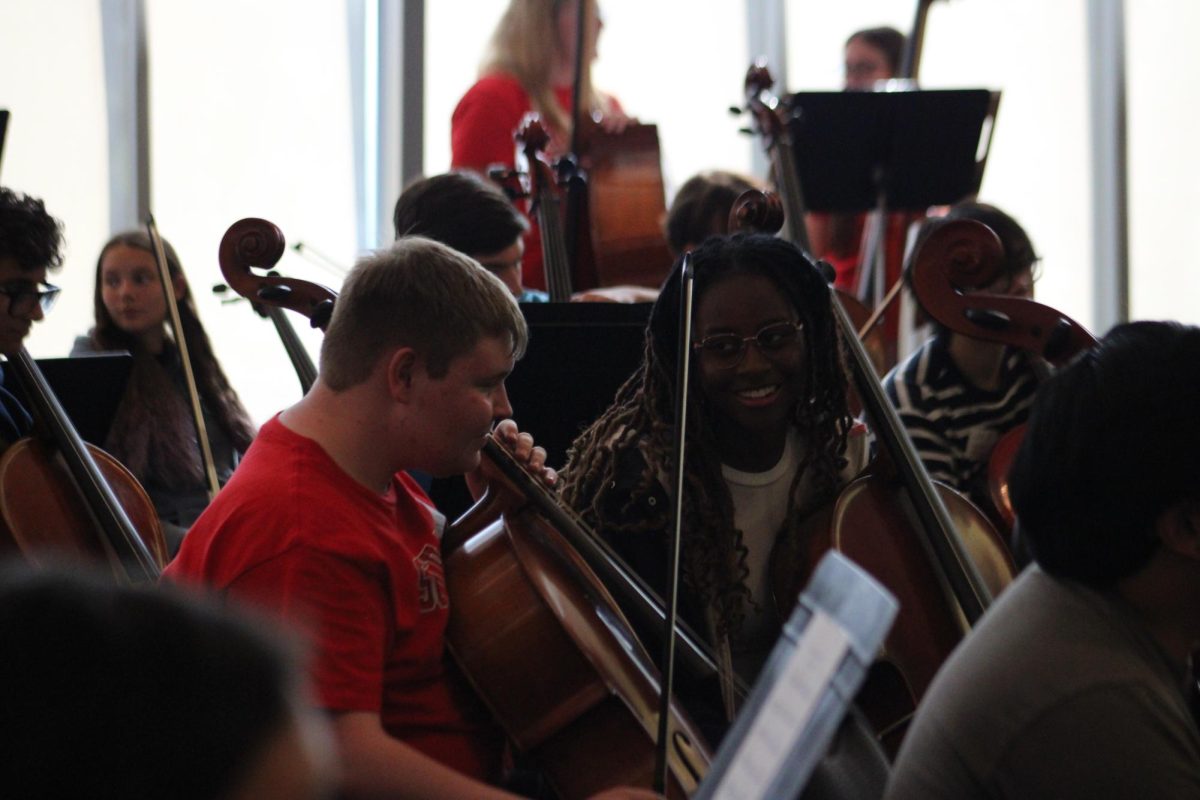Nebraska bill protects student’s First Amendment rights
January 29, 2020
On Jan. 11, 2017, LB206 was introduced by Senator Adam Morfeld. Named the Student Press Freedom Act, this bill was passed unanimously out of the judiciary committee last year and went for a floor debate in our legislature on Jan. 15 where it advanced and is scheduled to be voted on again this Friday.
This bill is one of many in the national New Voices movement that protects school-sponsored media that is written, published or broadcasted by a student journalist. They state that student journalists can not be censored by administration except for instances of libel, slander, invasion of privacy, violation of state or federal law, presenting a substantial disruption of the learning environment or violating the Society of Professional Journalist code of ethics.
New Voices is a “student-powered nonpartisan grassroots movement of state-based activists who seek to protect student press freedom with state laws.” Currently there are 14 states; Arkansas, California, Colorado, Illinois, Iowa, Kansas, Maryland, Massachusetts, Nevada, North Dakota, Oregon, Rhode Island, Vermont and Washington that are impacted by the New Voices bills.
I had the opportunity to talk to Sen. Morfeld, who introduced LB206, and discuss his own experience with censorship. In high school, Morfeld created an independent (or underground) newspaper of which his administration did not approve. He was even threatened with expulsion because of the newspaper.
“It was very memorable being told that I was going to be expelled because we weren’t reporting on anything crazy. There was nothing controversial. The only thing that was controversial for the principal was the fact that we had a paper,” Morfeld said.
The main reason why administrations want to censor students ideas is for the perception of power. Administrations are worried about making the school look good rather than bringing change to actual issues that we have.
“I talk to school administrators and there is no real good excuse for it other than they want to be in control,” Morfeld said. “It just seems very petty and not a justifiable or rational reason to justify censoring people’s voice and First Amendment rights.”
I believe that LB206 is important because it will no longer hold me, and others, back from writing what we feel is important. Students should not be scared, they should be heard. This fear is holding back the importance of student journalism.
This bill resists the demeaning affects of the 1988 Hazelwood vs. Kuhlmeier case, in which a student-led newspaper wrote an article discussing teen pregnancy which was deemed as “inappropriate” by school administration.
The court rulers found that the principal who censored the article was not violating First Amendment rights because they argued that it “disrupted the learning environment.”
Ever since Hazelwood vs. Kuhlmeier, students have been scared to speak up because they are afraid that they will get in trouble by administrators. By doing this, we are letting administration censor the creative minds of students that have passions, dreams and talents that are being crushed all because of the inequity student journalists are facing due to administration’s desire to protect the school by making it look good.
Last year, a senior at our school was censored from the newspaper because of an article she wrote about the Golden Army, a group of boys known to lead the chants at football and basketball games. In this article, she revealed the inappropriate actions made by this group of students despite the perceived support it was receiving by administration. Concluding the article, she came up with a resolution to solve this problem.
Administration approached this student because they were disappointed that she didn’t ask for approval for the article to be published and because administration wished that the student would’ve approached administration with the problem first instead of publishing an article.
This issue put the student under an enormous amount of pressure to give in to administration’s demands and provoked her to put her article on private because she felt like it was too much pressure to keep arguing her case. What little power she had from her platform as a journalist was taken from her. This student had the right to address what she felt was inappropriate in her newspaper article, and she had the privilege of her own platform to display this opinion and try to enact change.
As a result of the censorship, our Digital Journalism staff has been hesitant on releasing news that we believe is important to share. If nobody else is talking about it, we should be the ones to speak up about it because we have a platform. We shouldn’t feel scared, we should feel inspired that there are people relying on us to report news, despite controversies.
“I don’t think that there is a time in our history that strong robust journalism has ever been more important for our democracy,” Morfeld said. “To me, this bill protects students first amendment rights, but also tells students and sends a message to students that journalism is important. It’s protected by the state, and it’s a right you have to exercise. It’s important what you’re doing.”




